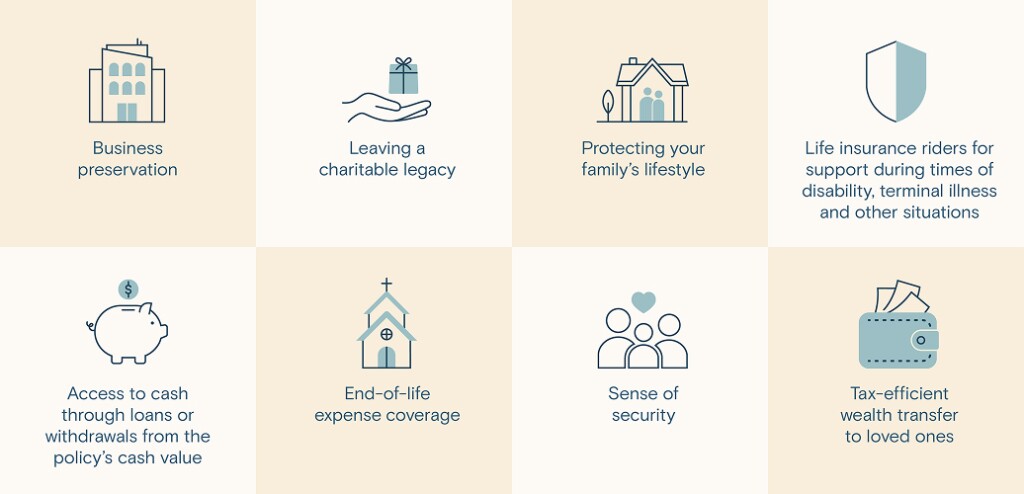How much life insurance should you have? As life changes, so does the answer to that question.
You have heard that the only constant is change. And when life’s big events bring change—the celebrations and disappointments—you may pause to consider how you want to live and the legacy you will leave.
When should you consider updating your life insurance coverage?
As with most financial moves, buying life insurance may not be a one-and-done decision. What works for you at age 32 may not apply at 52 or 72. Your coverage needs may increase or decrease over time. An ideal time to consider your changing need for life insurance is when you experience important life events.
1. You recently got married.
When you make a marriage promise, you commit to shared dreams. But you also pledge to stick by each other through life’s challenges—even if they include hardship or loss. As a
Life insurance can help replace lost income that would otherwise be used for mortgage or rent payments, credit card debt, student loans and other outstanding bills. Having the resources for those financial obligations could help you or your partner through a difficult transition.
2. There is a new baby in the household.
Parenting is a learn-as-you-go proposition. Life insurance is one decision most new parents know they need to make but don’t want to think about. But if you are not here to
Also, it’s never too early to consider
3. You've had a job change.
Many employers offer life insurance as an employee benefit. But you could lose that coverage if you leave your job. If you died unexpectedly, would the contract from your employer be enough to protect your family? Would you want enough protection to pay for your home loan? Are there future college expenses for the kids in your family?
Simply put, there is no such thing as one-size-fits-all life insurance, so you might consider adding individual coverage.
4. A recent divorce.
The disruptive nature of
Be aware that divorce and other major life events are also a good time to consider updating your
5. You are a new empty-nester.
When the kids are grown and on their own, you may be asking, “Do I still need life insurance?” Now is a good time to review your contract and learn more about the strategic uses of life insurance. You may no longer need coverage to ensure your children are protected.
But could you use any
6. New grandchildren.
Sharing your legacy with grandchildren happens in many meaningful ways, from relating family memories to giving them treasured heirlooms. You might also choose to list your grandchild as the beneficiary on a life insurance contract. Eventual life insurance proceeds could be used to help with college or vocational education, or if they want to start a business.
7. You recently retired.
In retirement, you will likely have different financial obligations, and they could change many times. But you can take steps now to help plan for them. Life insurance is a flexible tool that can be used to
Get an insurance checkup
As major life events occur, they can change your insurance needs. It’s important to safeguard what you have today while planning for the road ahead. And securing coverage sooner than later can mean savings over time since your health and age may have an impact on cost. Thrivent can assist you and make you feel more confident about a financial plan that works for you and your loved ones.







